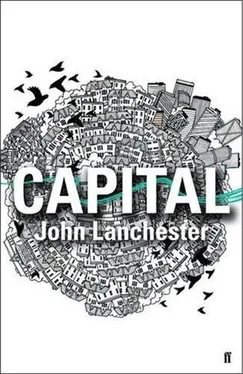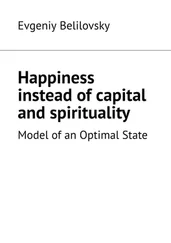He went into the room on his fourteenth day in custody and saw that today there was a different policeman, one he hadn’t seen before. Or had he? He wasn’t one of the regulars and yet he didn’t look completely unfamiliar. He was a young man, younger than Shahid, fresh-faced and slim-shouldered, in a nice suit. He was on his own, which was not standard practice.
‘Hello,’ said DI Mill, ‘I’m Detective Inspector Mill.’
It came back to Shahid.
‘You were at that public meeting, the one about the creepy website and cards and stuff,’ said Shahid. ‘I went to that.’
‘I know you did,’ said Mill. He dropped his eyes to the folder in front of him and looked as if he were reading it – a copper’s trick Shahid had got used to by now. The silence stretched.
‘You haven’t turned the machine on,’ said Shahid.
Mill didn’t answer. He gave the impression he was thinking about something else. Eventually he said,
‘Hardly any of my friends understand why I want to be a policeman. They think all you do in the police is go round banging people on the head and arresting drunk drivers. Or something – they don’t really know what they think, they just know they’re against it. But the real problem with the job isn’t anything to do with it being violent or difficult or with what the other coppers are like. The real problem with it is the sheer amount of routine. The drudgery. Most of it’s routine and detective work is no different. It’s not TV. Most of the time you know what’s going to happen. Surprises are rare. Nice surprises are even rarer.’
He fell silent again. Shahid felt no need to say anything.
‘And then something comes along which is a little bit different’, said Mill, ‘and it reminds you why you wanted to do the job in the first place. Like being here, for instance. I’d never been here before. Paddington Green. It’s where they bring terrorist suspects, as you know. Been doing it for years, since the IRA days. I’ve seen it on the news all my life. But this is the first time I’ve ever been inside. That counts as something new. It’s pretty cool. I like new things.’
Mill went quiet again and seemed to be following a train of thought.
‘I’ll tell you what else is cool. Terrorism is cool. I mean, it’s very uncool as an activity, obviously. But the thing about terrorism is, the resources given to it. From a policing point of view. Antisocial behaviour, all of that, it’s not such a big deal for us. People mind about it and all that but it’s not what gets you up in the morning. Somebody’s nicked your bike? Good luck with that. Somebody’s planning to stick a bomb somewhere? Different story. So that’s what’s cool. The amount of resources you get on terrorist cases. The kinds of things you can do with those resources are amazing. Like, getting somebody’s internet service provider to hand over the records of what sites they’ve been visiting over the last couple of years. That’s part one. Part two is getting the manpower to go through that stuff and see where it leads you. And this is where we get to the surprising thing. Surprising to me anyway. You following me so far?’
Mill was looking closely at Shahid. He was looking for signs that Shahid knew what was coming. He didn’t see any. Shahid looked the same way he had all the way along – like an irritable and, it had to be said, not very guilty thirtysomething. He nodded to Mill’s question.
‘What we found was this: that all the initial traffic setting up that blog We Want What You Have – the one which you came to the meeting about – came from your IP address.’
Mill folded his arms and sat back to watch. It was unmistakable: Shahid Kamal’s first reaction was total shock.
‘What?’
‘Yup – it came from your IP address. It didn’t come from your PC, or if it did, you’ve had it professionally cleaned up to target just those files and no others, which my colleagues tell me is unlikely. But it definitely came from your IP address.’
Shahid looked away and thought for a few moments.
‘This is a trick. The reason you aren’t taping this is because it’s all a lie and you’re trying to entrap me into something. You lot have come across no evidence of anything so you’re using this thing which was going on in the street and just chucking it at me.’
In response, Mill reached out and turned on the tape recorder that was always present in the suite, attached to the side wall. He said:
‘DI Charles Mill, 16 September 2008, interrogation of Shahid Kamal, tape starts at’ – he glanced at his watch – ‘14.17, no others present. So Shahid, I’ve just told you that there is a proven link between your IP address at your flat and the blog We Want What You Have, whose proprietor is under investigation for charges of harassment, trespass, obscenity, vandalism.’
‘Vandalism?’
‘Yup, that was when the clever clogs went down the street and keyed every car in it, all the way down one side and back up the other. That’s a lot of damage in a street of fancy cars. Call it ten grand. Custodial sentence, right there.’
Shahid shrugged. He did not look unduly troubled by the thought of people’s SUVs being messed up. Mill went on:
‘And there’s another one, animal cruelty. Dead birds, someone’s been sending them to houses in the street. Blackbirds. Not all of the houses, just some. In A5 envelopes. Bit sick, if you ask me. Know anything about that?’
‘That’s disgusting, but it’s nothing to do with me.’
What Mill did not say was that the dead birds had been sent in the last fortnight – in other words, while Shahid was already in Paddington Green. The link between We Want What You Have and Shahid’s internet access had been found two days before, after the latest wave of activity. By the time they knew about the link with Shahid, they already knew that he couldn’t have been responsible for what was now going on; at best he might be involved with somebody else. But there was a strange pattern to the way the site had worked. When it began, it had been photos of houses taken, Mill had long since concluded, by someone with a strong local interest. Then it went away for a while. Then it came back again, much darker, with abusive labels on the site, abusive postcards sent to the houses, graffiti in the street, cars being keyed. Now dead blackbirds had been sent through the post to seven different addresses. It seemed much angrier. The shift in tone and behaviour was baffling.
Shahid’s eyes were moving from side to side. He was thinking hard.
‘I know nothing about this,’ he eventually said. ‘Try the Belgian, if you can find him.’
‘It began some time before he came and stayed with you. Have you changed the encryption on your wireless internet at any point in the last months?’
‘No,’ said Shahid, unthinkingly – before realising he had just been tricked into giving up a perfect defence. If his internet access had been open, the traffic might have been nothing to do with him. He sighed. ‘It is encrypted and I am the only person who had the password. As you know, I let the Belgian use my internet access but not my computer.’
‘You’ll understand why this looks strange to us. You’re under arrest as a terrorist suspect, now it looks as if you’ve been making all sorts of menaces on the internet, threatening your neighbours, scaring the living daylights out of them. Doesn’t look too great, does it?’
‘I’m starting to get used to being accused of things I didn’t do,’ said Shahid. ‘I have no reason to believe you.’ He crossed his arms and looked over at the one-way glass. Yet again he found himself wondering who might be on the other side and what they might be thinking.
‘So who did this?’
Читать дальше












